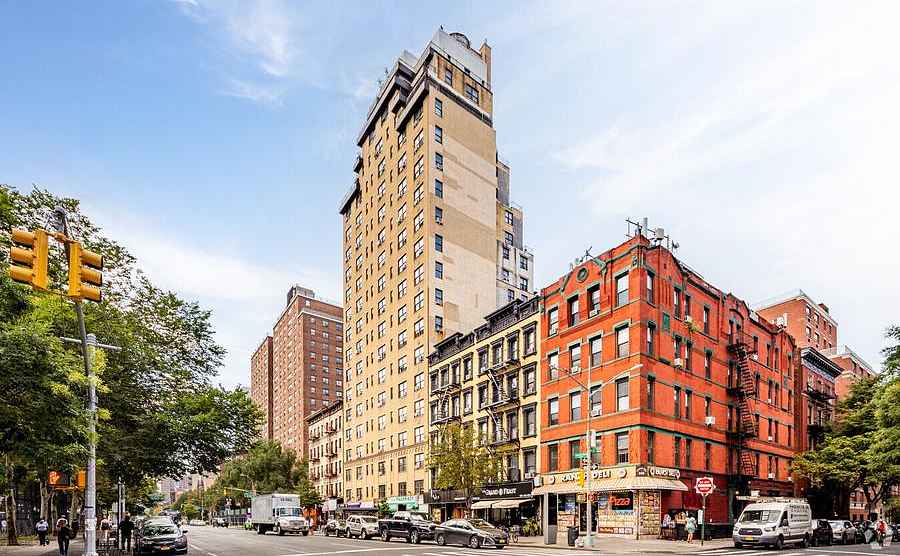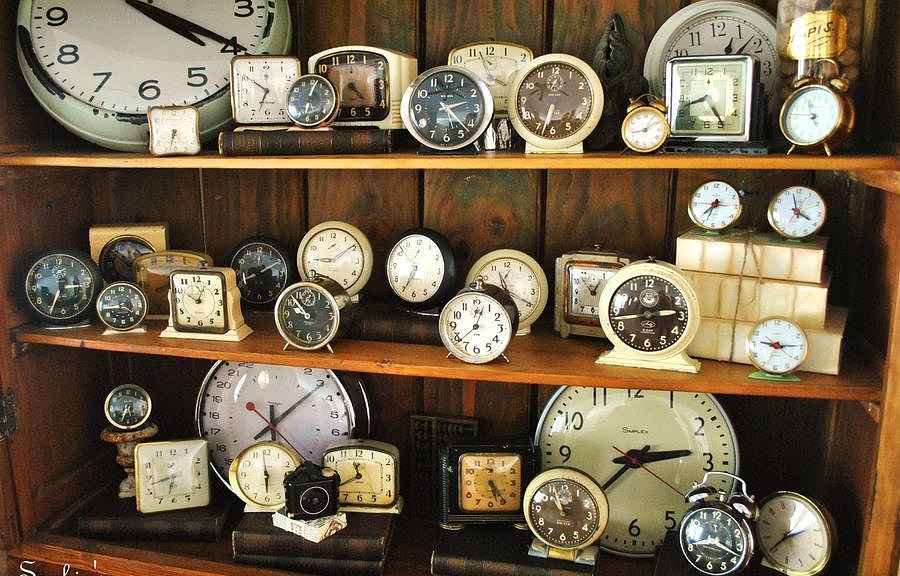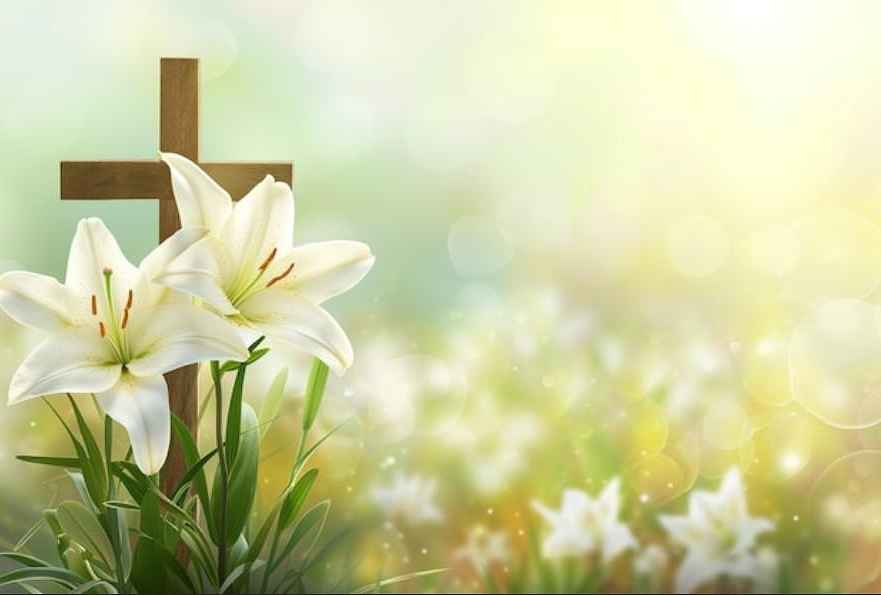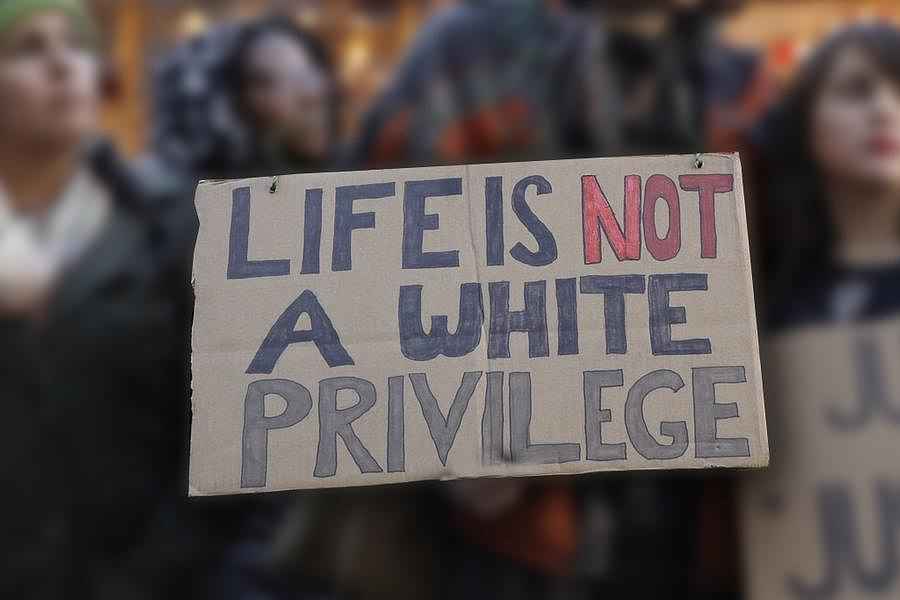






See listing of Recent and Most Popular articles on the Home Page
My World
Category: News & Current Events / Topics: Current Events, News • History • News • Racism and Inequality • Relationships • Social Issues • Social Movements • Trends • Values
Explaining White Privilege
Posted: June 26, 2020
An honest response to a white friend…
This article was posted on openDemocracy.net October 19, 2017
Editor's Note: Most of the contributing authors for SeniorLifestyle are older, white males—more by circumstance than intent. When a friend of mine suggested this article, written in 2017, it seemed a very appropriate addition to the discussion on facing racism that has become part of SeniorLifestyle in recent weeks. See the current list of articles (it is updated automatically as new articles are added).
There are those who deny white privilege, pointing to homeless and impoverished whites today, and the oppression of white "foreigners" outside the WASP (White Anglo Saxon Protestant) fold. While this is part of our history, it should not be used as a diversion from discussion of the racial prejudice and policy, whose stains remain to this day. Today, we face a unique opportunity to listen and give others the chance to tell their stories, honestly—and then, to do something about it. A good place to start is by heeding Rusty Wright's call for "Changing Racist Hearts," expanded this week into his thrid article under that banner, with his own story.
My white friend asked me to explain white privilege, so I decided to be honest. He wanted to know how institutional racism has made an impact on my life. I’m glad he asked, because I was ready to answer.
Yesterday I was tagged in a Facebook post by an old high school friend asking me and a few others a very public, direct question about white privilege and racism. I feel compelled not only to publish his query, but also my response to it, as it may be a helpful discourse for more than just a few folks on Facebook.push back on the concept of white privilege
Here’s his post:
To all of my Black or mixed race FB friends, I must profess a blissful ignorance of this “White Privilege” of which I’m apparently guilty of possessing. By not being able to fully put myself in the shoes of someone from a background/race/religion/gender/nationality/body type that differs from my own makes me part of the problem, according to what I’m now hearing. Despite my treating everyone with respect and humor my entire life (as far as I know), I’m somehow complicit in the misfortune of others. I’m not saying I’m colorblind, but whatever racism/sexism/other -ism my life experience has instilled in me stays within me, and is not manifested in the way I treat others (which is not the case with far too many, I know).
So that I may be enlightened, can you please share with me some examples of institutional racism that have made an indelible mark upon you? If I am to understand this, I need people I know personally to show me how I’m missing what’s going on. Personal examples only. I’m not trying to be insensitive, I only want to understand (but not from the media). I apologize if this comes off as crass or offends anyone.
Here’s my response:
Hi Jason. First off, I hope you don’t mind that I’ve quoted your post and made it part of mine. I think the heart of what you’ve asked of your friends of color is extremely important and I think my response needs much more space than as a reply on your feed. I truly thank you for wanting to understand what you are having a hard time understanding. Coincidentally, over the last few days I have been thinking about sharing some of the incidents of prejudice/racism I’ve experienced in my lifetime—in fact I just spoke with my sister Lesa about how to best do this yesterday—because I realized many of my friends—especially the white ones—have no idea what I’ve experienced/dealt with unless they were present (and aware) when it happened.
There are two reasons for this: 1) because not only as a human being do I suppress the painful and uncomfortable in an effort to make it go away, I was also taught within my community (I was raised in the ’70s and ’80s—it’s shifted somewhat now) and by society at large NOT to make a fuss, speak out, or rock the boat. To just “deal with it,” lest more trouble follow (which, sadly, it often does); 2) fear of being questioned or dismissed with “Are you sure that’s what you heard?” or “Are you sure that’s what they meant?” and being angered and upset all over again by well-meaning-but-hurtful and essentially unsupportive responses.
So, again, I’m glad you asked, because I really want to answer. But as I do, please know a few things first: 1) This is not even close to the whole list. I’m cherry-picking because none of us have all day; 2) I’ve been really lucky. Most of what I share below is mild compared to what others in my family and community have endured; 3) I’m going to go in chronological order so you might begin to glimpse the tonnage and why what many white folks might feel is a “where did all of this come from?” moment in society has been festering individually and collectively for the LIFETIME of pretty much every black or brown person living in America today, regardless of wealth or opportunity; 4) Some of what I share covers sexism, too—intersectionality is another term I’m sure you’ve heard and want to put quotes around, but it’s a real thing too, just like white privilege. But you’ve requested a focus on personal experiences with racism, so here it goes:
1. When I was 3, my family moved into an upper-middle-class, all-white neighborhood. We had a big backyard, so my parents built a pool. Not the only pool on the block, but the only one neighborhood boys started throwing rocks into. White boys. One day my mom ID’d one as the boy from across the street, went to his house, told his mother, and, fortunately, his mother believed mine. My mom not only got an apology, but also had that boy jump in our pool and retrieve every single rock. No more rocks after that. Then mom even invited him to come over to swim sometime if he asked permission. Everyone became friends. This one has a happy ending because my mom was and is badass about matters like these, but I hope you can see that the white privilege in this situation is being able to move into a “nice” neighborhood and be accepted not harassed, made to feel unwelcome, or prone to acts of vandalism and hostility.
2. When my older sister was 5, a white boy named Mark called her a “nigger” after she beat him in a race at school. She didn’t know what it meant, but in her gut she knew it was bad. This was the first time I’d seen my father the kind of angry that has nowhere to go. I somehow understood it was because not only had some boy verbally assaulted his daughter and had gotten away with it, it had way too early introduced her (and me) to that term and the reality of what it meant—that some white people would be cruel and careless with black people’s feelings just because of our skin color. Or our achievement. If it’s unclear in any way, the point here is if you’ve never had a defining moment in your childhood or your life where you realize your skin color alone makes other people hate you, you have white privilege.
3. Sophomore year of high school. I had Mr. Melrose for Algebra 2. Some time within the first few weeks of class, he points out that I’m “the only spook” in the class. This was meant to be funny. It wasn’t. So, I doubt it will surprise you I was relieved when he took medical leave after suffering a heart attack and was replaced by a sub for the rest of the semester. The point here is, if you’ve never been ‘the only one’ of your race in a class, at a party, on a job, etc. and/or it’s been pointed out in a “playful” fashion by the authority figure in said situation, you have white privilege.
4. When we started getting our college acceptances senior year, I remember some white male classmates were pissed that a black classmate had gotten into UCLA while they didn’t. They said that affirmative action had given him “their spot” and it wasn’t fair. An actual friend of theirs. Who’d worked his ass off. The point here is, if you’ve never been on the receiving end of the assumption that when you’ve achieved something it’s only because it was taken away from a white person who “deserved it,” you have white privilege.
5. When I got accepted to Harvard (as a fellow AP student, you were witness to what an academic beast I was in high school, yes?), three separate times I encountered white strangers as I prepped for my maiden trip to Cambridge that rankle to this day. The first was the white doctor giving me a physical at Kaiser:
Me: “I need to send an immunization report to my college so I can matriculate.”
Doctor: “Where are you going?”
Me: “Harvard.”
Doctor: “You mean the one in Massachusetts?”
The second was in a store, looking for supplies I needed from Harvard’s suggested “what to bring with you” list.
Store employee: “Where are you going?”
Me: “Harvard.”
Store employee: “You mean the one in Massachusetts?”
The third was at UPS, shipping off boxes of said “what to bring” to Harvard. I was in line behind a white boy mailing boxes to Princeton and in front of a white woman sending her child’s boxes to wherever.
Woman to the boy: “What college are you going to?” Boy: “Princeton.”
Woman: “Congratulations!”
Woman to me: “Where are you sending your boxes?” Me: “Harvard.”
Woman: “You mean the one in Massachusetts?”
I think: “No, bitch, the one downtown next to the liquor store.” But I say, gesturing to my LABELED boxes: “Yes, the one in Massachusetts.”
Then she says congratulations, but it’s too fucking late. The point here is, if no one has ever questioned your intellectual capabilities or attendance at an elite institution based solely on your skin color, you have white privilege.
6. In my freshman college tutorial, our small group of 4–5 was assigned to read Thoreau, Emerson, Malcolm X, Joseph Conrad, Dreiser, etc. When it was the week to discuss The Autobiography of Malcolm X, one white boy boldly claimed he couldn’t even get through it because he couldn’t relate and didn’t think he should be forced to read it. I don’t remember the words I said, but I still remember the feeling—I think it’s what doctors refer to as chandelier pain—as soon as a sensitive area on a patient is touched, they shoot through the roof—that’s what I felt. I know I said something like my whole life I’ve had to read “things that don’t have anything to do with me or that I relate to” but I find a way anyway because that’s what learning is about—trying to understand other people’s perspectives. The point here is—the canon of literature studied in the United States, as well as the majority of television and movies, have focused primarily on the works or achievements of white men. So, if you have never experienced or considered how damaging it is/was/could be to grow up without myriad role models and images in school that reflect you in your required reading material or in the mainstream media, you have white privilege.
7. All seniors at Harvard are invited to a fancy, seated group lunch with our respective dorm masters. (Yes, they were called “masters” up until this February, when they changed it to “faculty deans,” but that’s just a tasty little side dish to the main course of this remembrance). While we were being served by the Dunster House cafeteria staff—the black ladies from Haiti and Boston who ran the line daily (I still remember Jackie’s kindness and warmth to this day)—Master Sally mused out loud how proud they must be to be serving the nation’s best and brightest. I don’t know if they heard her, but I did, and it made me uncomfortable and sick. The point here is, if you’ve never been blindsided when you are just trying to enjoy a meal by a well-paid faculty member’s patronizing and racist assumptions about how grateful black people must feel to be in their presence, you have white privilege.
8. While I was writing on a television show in my 30s, my new white male boss—who had only known me for a few days—had unbeknownst to me told another writer on staff he thought I was conceited, didn’t know as much I thought I did, and didn’t have the talent I thought I had. And what exactly had happened in those few days? I disagreed with a pitch where he suggested our lead female character carelessly leave a potholder on the stove, burning down her apartment. This character being a professional caterer. When what he said about me was revealed months later (by then he’d come to respect and rely on me), he apologized for prejudging me because I was a black woman. I told him he was ignorant and clearly had a lot to learn. It was a good talk because he was remorseful and open. But the point here is, if you’ve never been on the receiving end of a boss’s prejudiced, uninformed “how dare she question my ideas” badmouthing based on solely on his ego and your race, you have white privilege.
9. On my very first date with my now husband, I climbed into his car and saw baby wipes on the passenger-side floor. He said he didn’t have kids, they were just there to clean up messes in the car. I twisted to secure my seatbelt and saw a stuffed animal in the rear window. I gave him a look. He said, “I promise, I don’t have kids. That’s only there so I don’t get stopped by the police.” He then told me that when he drove home from work late at night, he was getting stopped by cops constantly because he was a black man in a luxury car and they assumed that either it was stolen or he was a drug dealer. When he told a cop friend about this, Warren was told to put a stuffed animal in the rear window because it would change “his profile” to that of a family man and he was much less likely to be stopped. The point here is, if you’ve never had to mask the fruits of your success with a floppy-eared, stuffed bunny rabbit so you won’t get harassed by the cops on the way home from your gainful employment (or never had a first date start this way), you have white privilege.
10. Six years ago, I started a Facebook page that has grown into a website called Good Black News because I was shocked to find there were no sites dedicated solely to publishing the positive things black people do. (And let me explain here how biased the coverage of mainstream media is in case you don’t already have a clue—as I curate, I can’t tell you how often I have to swap out a story’s photo to make it as positive as the content. Photos published of black folks in mainstream media are very often sullen- or angry-looking. Even when it’s a positive story! I also have to alter headlines constantly to 1) include a person’s name and not have it just be “Black Man Wins Settlement” or “Carnegie Hall Gets 1st Black Board Member,” or 2) rephrase it from a subtle subjugator like “ABC taps Viola Davis as Series Lead” to “Viola Davis Lands Lead on ABC Show” as is done for, say, Jennifer Aniston or Steven Spielberg. I also receive a fair amount of highly offensive racist trolling. I don’t even respond. I block and delete ASAP. The point here is, if you’ve never had to rewrite stories and headlines or swap photos while being trolled by racists when all you’re trying to do on a daily basis is promote positivity and share stories of hope and achievement and justice, you have white privilege.
OK, Jason, there’s more, but I’m exhausted. And my kids need dinner. Remembering and reliving many of these moments has been a strain and a drain (and, again, this ain’t even the half or the worst of it). But I hope my experiences shed some light for you on how institutional and personal racism have affected the entire life of a friend of yours to whom you’ve only been respectful and kind. I hope what I’ve shared makes you realize it’s not just strangers, but people you know and care for who have suffered and are suffering because we are excluded from the privilege you have not to be judged, questioned, or assaulted in any way because of your race.
As to you “being part of the problem,” trust me, nobody is mad at you for being white. Nobody. Just like nobody should be mad at me for being black. Or female. Or whatever. But what IS being asked of you is to acknowledge that white privilege DOES exist and not only to treat people of races that differ from yours “with respect and humor,” but also to stand up for fair treatment and justice, not to let “jokes” or “off-color” comments by friends, co-workers, or family slide by without challenge, and to continually make an effort to put yourself in someone else’s shoes, so we may all cherish and respect our unique and special contributions to society as much as we do our common ground.
With much love and respect,
Lori
This article was originally published by Good Black News and then edited for and published in YES! Magazine.
Search all articles by Lori Lakin Hutcherson
Posted: June 26, 2020 Accessed 233 times
![]() Go to the list of most recent My World Articles
Go to the list of most recent My World Articles
![]() Search My World (You can expand the search to the entire site)
Search My World (You can expand the search to the entire site)
![]() Go to the list of Most Recent and Most Popular Articles across the site (Home Page)
Go to the list of Most Recent and Most Popular Articles across the site (Home Page)
 Loading requested view...
Loading requested view...